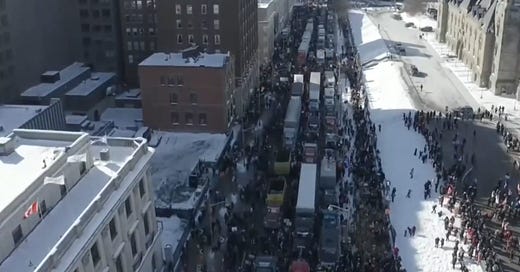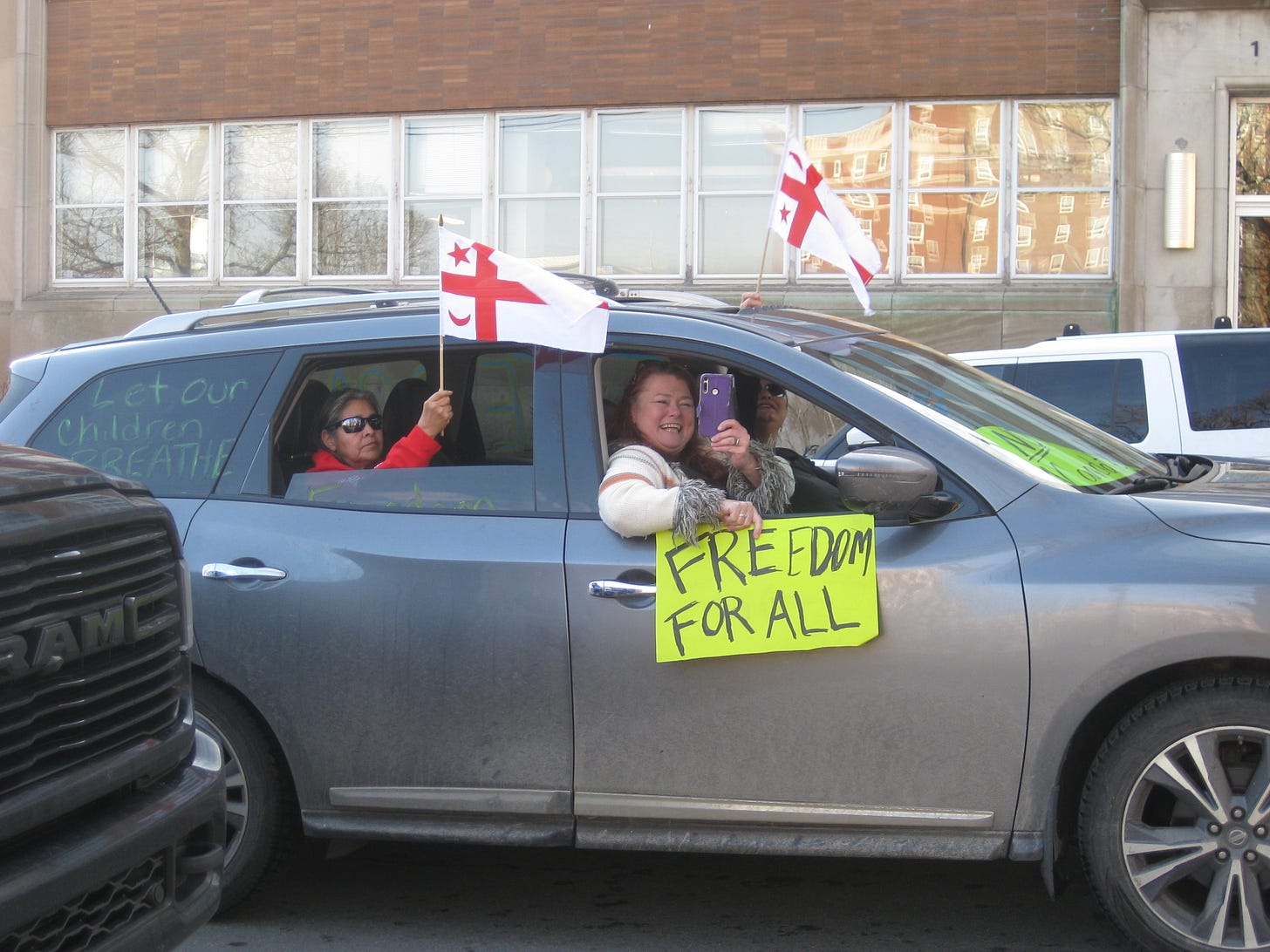Why the Canadian Civil Liberties Association will be challenging the government’s narrative on the need to invoke the Emergencies Act
An independent public inquiry into the federal government’s invocation of the Emergencies Act last February, in response to the “Freedom Convoy” blockade, will begin this week. The invocation of the Act—a law that was passed in 1988—was unprecedented in the history of the country, and automatically resulted in the establishment of the Public Order Emergency Commission to examine what went into the government’s decision-making at the time.
“The Commission will examine the circumstances that led to the declaration being issued and the measures taken in response to the emergency. This includes the evolution of the convoy, the impact of funding and disinformation, the economic impact, and efforts of police and other responders prior to and after the declaration,” according to the Commission’s Web site.
Over a period of six weeks, starting this Thursday, the Commission will call more than 50 witnesses including Prime Minister Justin Trudeau, federal cabinet ministers, protest participants, representatives of law enforcement, the Canadian Security Intelligence Service (CSIS), the Canadian Border Services Agency, as well as individuals, businesses and organizations impacted by the protests. Trudeau appointed Justice Paul Rouleau as the Commissioner for the inquiry, and he’ll be accompanied by a bevy of lawyers, researchers and senior policy advisors.
“Freedom Convoy” converges on downtown Ottawa, January 28, 2022. Wiki commons.
Recall, the Emergencies Act gave the federal government extraordinary “temporary” powers to respond to what it described as a “national emergency.” The blockade began on January 28 when a “Freedom Convoy,” that included a number of big rigs, converged on Ottawa’s downtown core in opposition to the federal government’s requirement that Canadian truck drivers crossing the US border be fully vaccinated to avoid testing and quarantine requirements. The protests had since expanded to include border blockades at the Ambassador Bridge between Windsor and Detroit, as well as at Coutts, Alberta and at Emerson, Manitoba. As well, demonstrations erupted spontaneously across the country where protesters expressed frustration and anger over a broad range of issues related to ongoing public health measures, including lock-downs, mandatory masking, school closures, and provincial vaccine policies that prohibited the unvaccinated from accessing non-essential services.
The Quaking Swamp Journal covered the story, and at the time interviewed Laura Berger, a lawyer and interim program director with the Canadian Civil Liberties Association (CCLA), an independent, non-governmental organization based in Toronto. Shortly after the Emergencies Act was invoked, the CCLA announced it was taking the Canadian government to court to challenge the use of the law. An initial hearing was held in August, where the group presented arguments highlighting how the federal government has been “using cabinet privilege to try to shield an increasingly wide range of government information from meaningful scrutiny.”
Essentially, the CCLA argues that the situation in Canada did not meet the extremely high threshold in the Act, and that because it grants the government extraordinary powers, the use of those emergency powers cannot be normalized.
“We're coming off of two years in a pandemic where the term ‘emergency’ has been used a great deal and where governments have used emergency measures to try and respond to the situation. But we have to remember that that's not normal; that's meant to be an exceptional situation in our democracy and that typically governments and police forces can and do respond to difficult situations using the normal laws and democratic tools that they have in their arsenal,” explained Berger at the time.
The organization argues that blockades are policing issues, not a national emergency, and declaring a national emergency, creating massive powers to shut down all protests across Canada, and giving government and financial institutions broad license to freeze bank accounts was not the appropriate response to Ottawa’s blockades. In other words, the Act gave (and gives) government extraordinary powers to bypass democratic safeguards, transparency or accountability.
“We are challenging the decision [in our court challenge] because invoking the Emergencies Act has allowed the government to adopt orders that are extremely broad and that could have an extremely broad impact on Canadians’ Charter rights, including the right to participate in peaceful assembly and the protection of privacy under Section 8 of the Charter. So, the stakes are high,” said Berger.
At the time the public inquiry was announced, the CCLA pointed out that the government “fell short” in setting out its vision for the process because it said it would “look primarily at the actions of protesters,” rather than “ensure a robust examination of the government’s use of emergency powers. The broader context is important, but the government’s attempts to divert attention from their own actions is concerning,” writes the CCLA.
Protesters supporting “Freedom Convoy” in downtown Halifax, February 12, 2022. Photo: Linda Pannozzo.
The Commission has granted the CCLA full standing at the inquiry which means it can question witnesses before the commission and is receiving documents not available to the public. The CCLA write:
“We will seek critical outcomes from the inquiry: a thorough review of the evidence that informed the government’s decision, a careful analysis of that decision, and an exacting examination of the impacts that the emergency orders had on the rights and freedoms of people in Canada.”
A list of witnesses who will be appearing before the Commission can be found in the following link. The Quaking Swamp Journal will be keeping an eye on the Inquiry and will be reporting on it further here. Stay tuned.






Minor point, but the use of the Emergencies Act is not truly unprecedented. Its predecessor, the War Measures Act, was invoked in October 1970 and subsequently judged to give government too much power. The Emergencies Act replaced it and included the public accountability process we are about to see. I'm glad the CCLA is intervening and expect some valuable insights.
Thanks for covering this. I'm hoping, with some of the last bits of my waning optimism, that the CCLA's goals are met. Should be interesting.